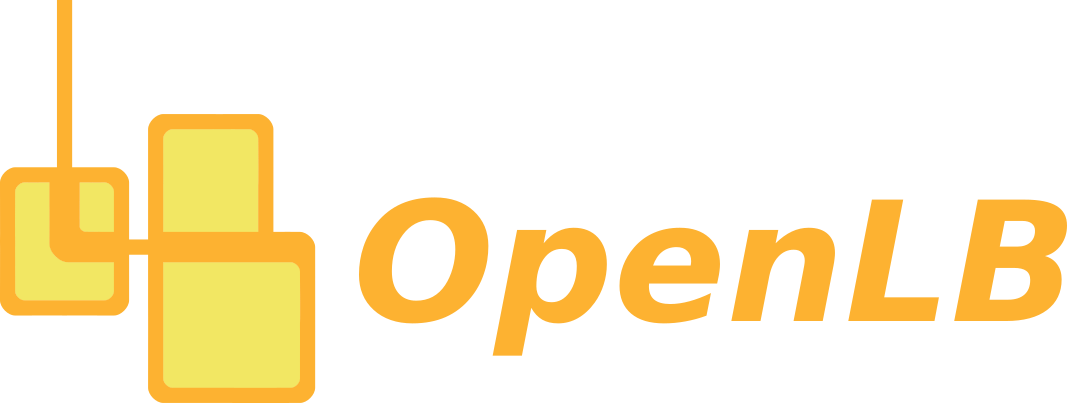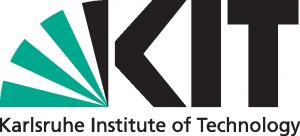3rd Spring School
Lattice Boltzmann Methods
with OpenLB Software Lab
18.-22. February 2019
Mannheim, Germany
Executive committee
- Mathias J. Krause, Karlsruhe Institute of Technology, Germany
- Robin Trunk, Karlsruhe Institute of Technology, Germany
- Natascha Heß-Mohr, Mannheim University of Applied Sciences, Germany
- Matthias Rädle, Mannheim University of Applied Sciences, Germany
The field of Lattice Boltzmann Method
In recent years, Lattice Boltzmann Methods (LBM) turned into an established numerical tool for computational fluid dynamic (CFD) problems and beyond. The simulation of complex multi-physical problems benefits strongly from the comprehensive mesoscopic modelling underlying LBM and establishes LBM besides traditional numerical methods.
Target audience
The expected attendees are developers and researchers, from industry and academia interested to learn theoretical and practical aspects of LBM. The spring school addresses e.g. engineers, computer scientists, mathematicians and physicists as well as Master and PhD students. The course level is beginners in LBM. Based on their interest in CFD, this course provides a collaborative platform for LBM, both for developers and researchers.
Objective of the spring school
The spring school introduces scientists and applicants from industry to the theory of LBM and trains them on practical problems. The first three days are dedicated to the theoretical fundamentals of LBM up to ongoing research on selected topics. Followed by two days of mentored training on case studies using OpenLB, the participants gain deep insights into LBM and its applications.
This educational concept is probably unique in the LBM community and offers a comprehensive and personal guided approach to LBM. Participants also benefit from the knowledge exchange during poster session, coffee breaks and an excursion.
Lab room and requirements
In the computing lab sessions on Thursday and Friday, the participants are trained on practical applications, deploying the open source software OpenLB. Particular focus is placed on case studies, which are important to understand and verify the theory presented in the lectures, earlier in the spring school. By the help of experienced tutors, the computing lab sessions also enable to set up OpenLB simulations for relevant problems. To guaranty personal tutoring and intensive exchange between experienced mentors and novices, the lab is limited to 50 participants.
The attendees are responsible to bring their own laptop equipped with the software
- GNU c++ compiler 4.8 and higher
- OpenMPI 1.6 and higher
- Paraview
Windows users prepare their laptop in advance following the Technical Report 4 or 5 (www.openlb.net/tech-reports).
Speakers
- François Dubois, CNAM Paris, Université Paris-Sud, France (confirmed)
- Mathias J. Krause, Karlsruhe Institute of Technology, Germany (confirmed)
- Timm Krüger, The University of Edinburgh, United Kingdom (confirmed)
- Timothy Reis, University of Greenwich, United Kingdom (confirmed)
- Max Gaedtke, Nicolas Hafen, Marc Haussmann, Fabian Klemens, Marie-Luise Maier, Albert Mink, Markus Mohrhard, Robin Trunk, Karlsruhe Institute of Technology, Germany
- Jesse Ross-Jones, Mannheim University of Applied Sciences
Course delivery
Printed lecture notes, lectures by invited speakers, software lab mentored by OpenLB developers, 5x lunch, 2x dinner, social excursion and Spring School dinner, all coffee breaks, certificate of participation
Pricing
| Early registration
(by 14. January 2019) |
Regular registration | |
| Academia | € 350 | € 500 |
| Industry | € 1.700 | € 1.850 |
Poster session award
The award is aiming at supporting excellent students working in the field of LBM.
Program
| Time | Monday | Tuesday |
| 09:00-10:00 | Opening
LBM for application, Mathias J. Krause |
Turbulence models, Marc Haußmann |
| 30min | Coffee | |
| 10:30-11:30 | Short introduction by participants | Thermal flows, Max Gaedtke |
| 11:30-12:30 | Introduction to LBM, Timothy Reis | Micro flows, Jesse Ross-Jones
Optimal fluid flow control with adjoint LBM, Fabian Klemens |
| 12:30-14:00 | Lunch | |
| 14:00-15:00 | Boundary condition, Timothy Reis | Multi-phase and multi-component flows, Timm Krüger |
| 15:00-16:00 | Dimensionalisation, Timm Krueger | Particulate flows, Marie-Luise Maier and Robin Trunk |
| 30min | Coffee | |
| 16:30-17:30 | Analysis of LBM, François Dubois | Efficient parallel implementation, Mathias J. Krause |
| 17:30 | Poster session and dinner | Free, optional: help desk, in order to get OpenLB running on your laptop |
| Time | Wednesday | Thursday | Friday |
| 09:00-10:00 | Introduction to OpenLB | Setup geometry, meshing | Advanced models, using Doxygen docu |
| 30min | Coffee | ||
| 10:30-11:30 | Preliminaries (Linux, compile, run in parallel, ParaView) | Exercise 2: prepare geometry and meshing | Exercise 5 and 6: particulate flows, closing |
| 11:30-12:30 | XML-parameter interface, converter, Exercise 1: getting started, execute examples, get results | Place LB models, initial and boundary conditions, convergence | |
| 12:30-14:00 | Lunch | ||
| 14:00-15:00 | Social event / excursion | Exercise 3: set boundary conditions | Option 1: work on your own application
Option 2: OpenLB for developers: implement your own LB model |
| 15:00-16:00 | Get results: console output, vtk, Gnuplot, images, functor concept | ||
| 30min | Coffee | ||
| 16:30-17:30 | Exercise 4: get results | ||
| 19:00 | Spring school dinner (starts at 17:00) | Dinner | |
Supported by
|
|
Mannheim University of Applied Sciences |
|
|
Karlsruhe Institute of Technology |



